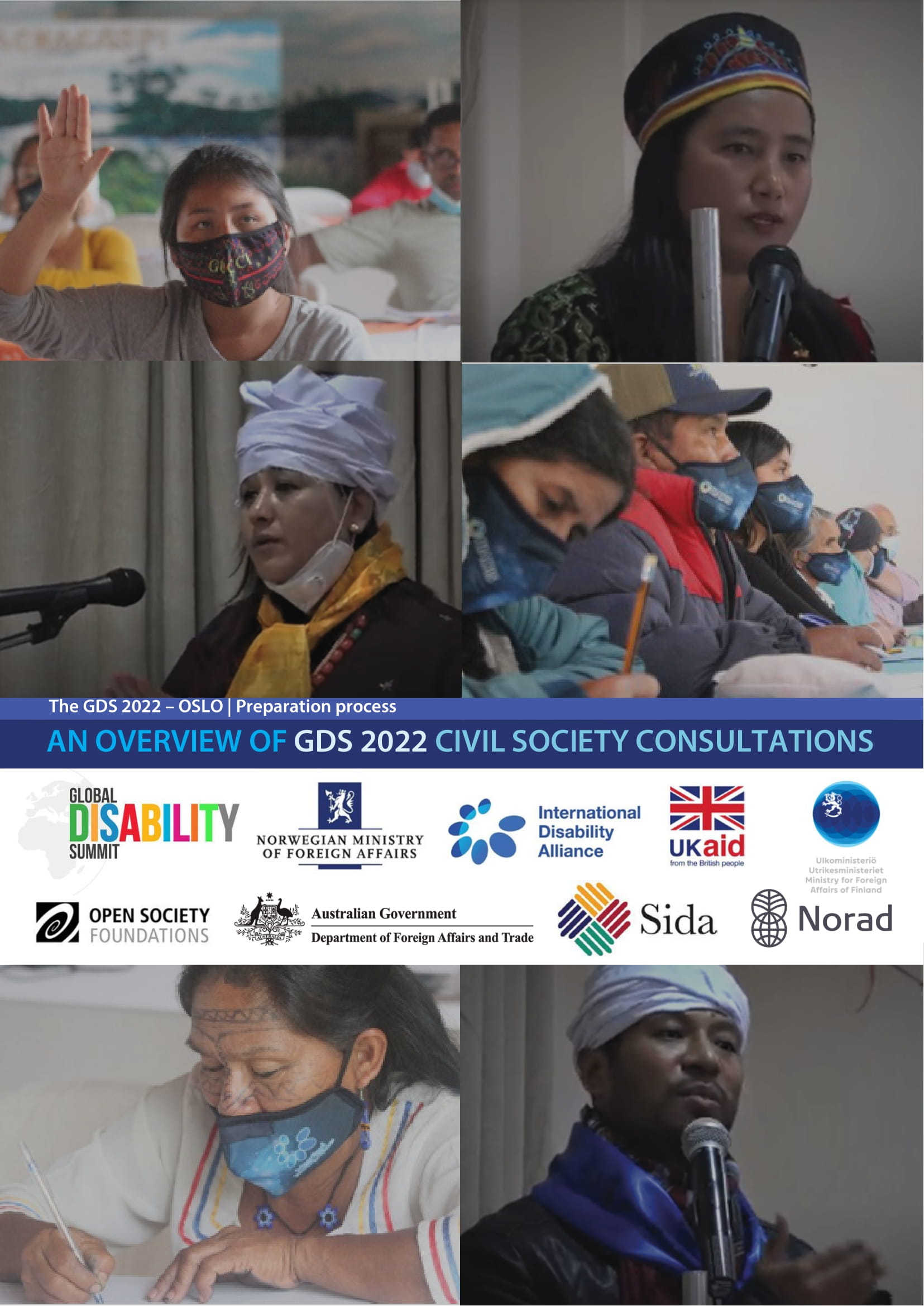An Overview of GDS 2022 Civil Society Consultations

In December 2020, the International Disability Alliance (IDA) organized with national and regional partners a series of consultations to inform the GDS themes, priorities, and preparations. The backbone of the GDS’s participatory character is the consultation process, which engages representative organizations of persons with disabilities from around the world prior to the main event. They promote ownership of the GDS process among organizations of persons with disabilities, particularly from countries in the Global South.
This is why national and regional consultations are crucial; they serve as the basis for the elaboration of the GDS agenda, so it reflects the priorities, aspirations, and concerns of people with disabilities in different parts of the world. To this end, guiding questions and a set of 5 desired outcomes were devised, to help steer the dialogue towards comparable sets of information:
Outcome 1: The diversity of the disability community is adequately represented, including the most underrepresented groups of persons with disabilities.
Outcome 2: The perception by organizations of persons with disabilities of the progress made in countries since the GDS 2018 is highlighted, following the bottom-up principle of the GDS partnership.
Outcome 3: Organizations of persons with disabilities identify the priority focus areas for the forthcoming GDS, and capacity building opportunities in the lead-up to the main event, such as webinars, online courses, and multi-stakeholder regional dialogues are seized.
Outcome 4: Organizations of persons with disabilities come up with advocacy and awareness-raising strategies around GDS commitments, and discuss new commitments that may be requested from their Governments.
Outcome 5: Lessons learned from the COVID-19 pandemic are inserted and presented in the GDS discussions and outcomes
